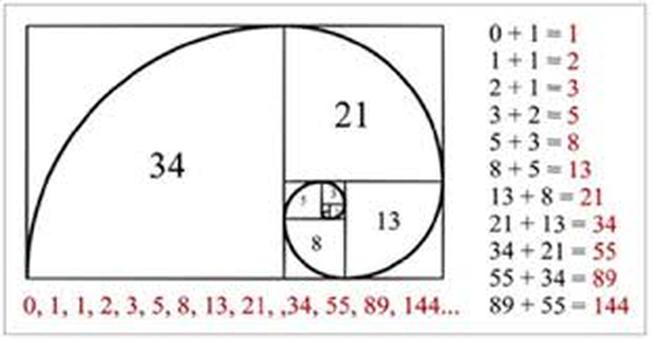A Fibonacci Poem uses the Fibonacci sequence so that the number of syllables in each line equals the total number of syllables in the preceding two lines. The Fibonacci sequence begins with either zero or one, followed by one, and proceeds based on the rule that each number (called a Fibonacci number) is equal to the sum of the preceding two numbers.
Because the lines have ever-increasing syllables, the composition of long Fibonacci poems is very challenging. As a result, most have only six or seven lines. The last syllable in each line may rhyme with the last syllable in one or more other lines, although rhyme is not a requirement.
Fibs have become popular among geeks as well as literati. According to some enthusiasts, this new poetic structure has the capacity to spark communication among mathematicians, physicists, chemists, biologists and poets, despite the gulfs that often seem to prevail between their disciplines in other respects. The Fibonacci poem, like the mathematical concept it's based on, is named for Leonardo Pisano (1170 - 1250), an Italian mathematician also known as Fibonacci. The poetry form probably goes back much earlier than Fibonacci. Fibonacci is said to have found instances of his sequence used in Sanskrit poetry of the 12th century. The sequence itself was reportedly discovered by the Sanskrit grammarian Pingala, in 500 BC. Much more recently, Gregory K. Pincus coined the term Fib in hisblog, to refer to a six-line, twenty syllable version of the form. Pincus elicited attempts from his readers, sparking interest in the Fib, a mention on Slashdot, and a great number of examples proliferating online as a result.
1,1,2,3,5,8,13 = 7 lines
THE GROTTO CALLS
It
lies
there in
unearthly
stillness within its
misty-shrouded native mountains.
An ethereal fairy cavern hidden from the world.
1,1,2,3,5,8,13,8,5,3,2,1,1 = 13 lines
THE GROTTO CALLS
It
lies
there in
unearthly
stillness within its
misty-shrouded native mountains.
An ethereal fairy cavern hidden from the world.
A timeless haven that begs me
return for solace
amid oaks,
sip from
its
soul.

 RSS Feed
RSS Feed